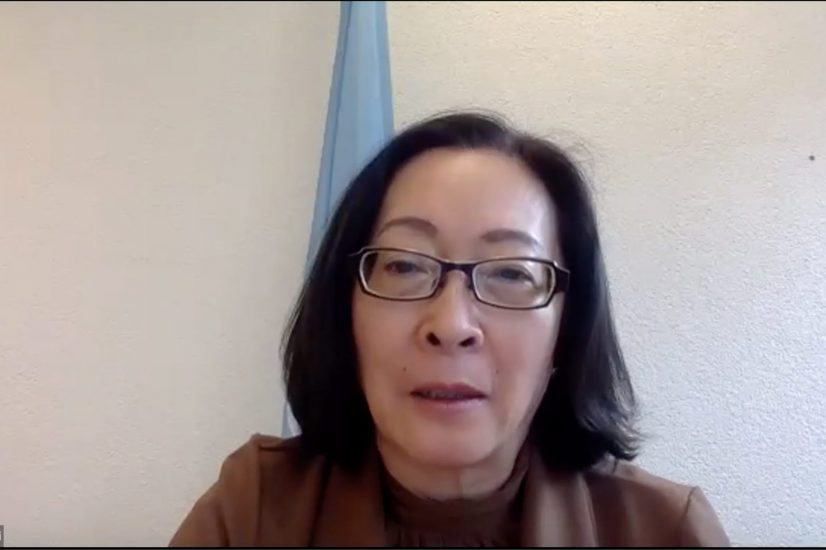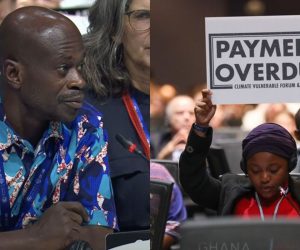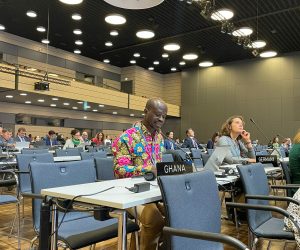MS. MAMI MIZUTORI – CVF Global Parliamentarians Meeting

MS. MAMI MIZUTORI – CVF Global Parliamentarians Meeting, Special Representative of the UN Secretary-General for Disaster Risk Reduction
CVF Global Parliamentarians Meeting
“Parliamentarians of Climate Threatened Nations Championing Planetary Prosperity”
November 25, 2020
Thank you very much Saber, it is great to see you, albeit virtually, since the last time at the Global Platform for Disaster Risk Reduction in Geneva last year,
Martin, in you and the IPU we have a very valued partner to support parliamentarians across the whole world,
Hello to our dear friend Loren,
President Nasheed,
Excellencies, Distinguished Parliamentarians, Ladies and Gentlemen,
It was already apparent before the pandemic that the world was struggling to achieve the Sustainable Development Goals given the steep rise in climate-related disasters over the last twenty years. Actually, we know that 90% of the major disasters of the past 20 years were related to extreme weather events.
The eradication of poverty is impossible if you are losing a sizable percentage of your GDP year after year due to extreme weather events.
Last year alone, 25 million people were forced from their homes by these extreme weather events.
The slow progress, unfortunately, on reducing greenhouse gas emissions and the inadequate levels of investment in adaptation to climate change for climate vulnerable countries, points to major shortcomings in the governance of disaster risk. This is where we need parliamentarians to react on now.
The underlying weakness of disaster risk governance globally was revealed most clearly by the failure to prepare adequately for the COVID-19 pandemic despite many warnings and the inclusion – at the insistence of member States themselves – of biological hazards in the Sendai Framework for Disaster Risk Reduction. This weakness of disaster risk governance is the issue that we really need to tackle.
Moving from words to action – as many of you already have mentioned, starting with H.E. Ban Ki-moon and Saber as well – is always a challenge but failure to do so is too costly.
The lessons learned to date from the climate emergency and the pandemic must now be applied as we strengthen both nationally determined contributions under the Paris Agreement and national strategies for disaster risk reduction under the Sendai Framework for Disaster Risk Reduction – because, as Saber has mentioned, disaster and climate emergency are so closely linked.
Parliamentarians have a crucial role to play in ensuring that these plans – NDCs and national strategies for disaster risk reduction – are realistic and importantly that resources are allocated to ensure their implementation is supported by appropriate legislation and regulation. There is nothing stronger than law-based governance.
Nationally Determined Contributions embody efforts by each country to reduce national emissions and adapt to climate change. The majority of them highlight disaster risk reduction as a priority.
Similarly, adaptation to climate change is a constant thread that we are seeing in the already 93 national strategies for disaster risk reduction that have been developed to date.
Parliamentarians have an essential role to play in the national debates on the development of these instruments and ensuring that they are coherent and complementary.
This requires a systemic and integrated approach to disaster risk and recognition that beyond climate change there are a range of risk drivers which also need to be addressed through environmental protection, regulation of land use and building codes, and poverty reduction measures.
As Martin has already mentioned, this approach will be reflected in the new Parliamentarian toolkit for disaster risk reduction which my organization the UNDRR is developing with the IPU. This toolkit/handbook will be launched early next year.
We look forward to working with you so that this toolkit, these guidance, will be transformed into action and ensure that we can both make progress at national, local level, and at the community level.
Thank you for your attention.





